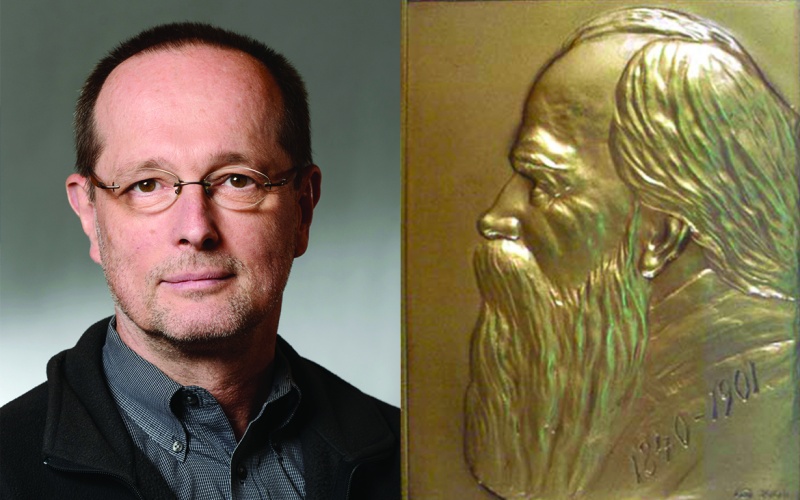By Jon Atherton
Günter Wagner, the Alison Richard Professor of Ecology and Evolutionary Biology, has received the Alexander Kowalevsky Medal from the St. Petersburg Society of Naturalists. Presented August 22nd at a meeting of the Pan-American Society for Evolutionary Developmental Biology, the medal is one of the world’s most prestigious awards in the field of evolutionary biology.
Wagner is an evolutionary geneticist with training in biochemcial engineering, zoology and mathematics. His academic career began at the University of Vienna, and in 1991 he became professor at the Biology Department at Yale. From 1996 to 2001 he was Chair of the Department of Ecology and Evolutionary Biology at Yale, and in 2010 his lab moved to the Systems Biology Institute at Yale’s West Campus.
Dr. Wagner’s research focuses on the evolution of gene regulation as it relates to the origin of evolutionary novelties. His lab conducts research on the evolution of endometrial stromal cells in the context of the evolutionary origin of pregnancy, and on the developmental basis of character identity, for instance in the case of digit identity in birds.
In 2016 Wagner received global acclaim for groundbreaking research on the evolutionary origins of the female orgasm. While playing no obvious role in human reproduction, the research found that the trait originated as a way to stimulate ovulation.
Alexander Onufrievich Kowalevsky was one of the most significant 19th-century biologists working at the intersection of evolution and embryology. The medal named in his honor was first established in the 1910s, but fell dormant through World War I and the Russian Revolution. The St. Petersburg Society of Naturalists resurrected the medal in 2001 and, based on the recommendations of an international committee of scientists, now bestows the award annually for distinguished achievements in evolutionary developmental biology and comparative zoology.
